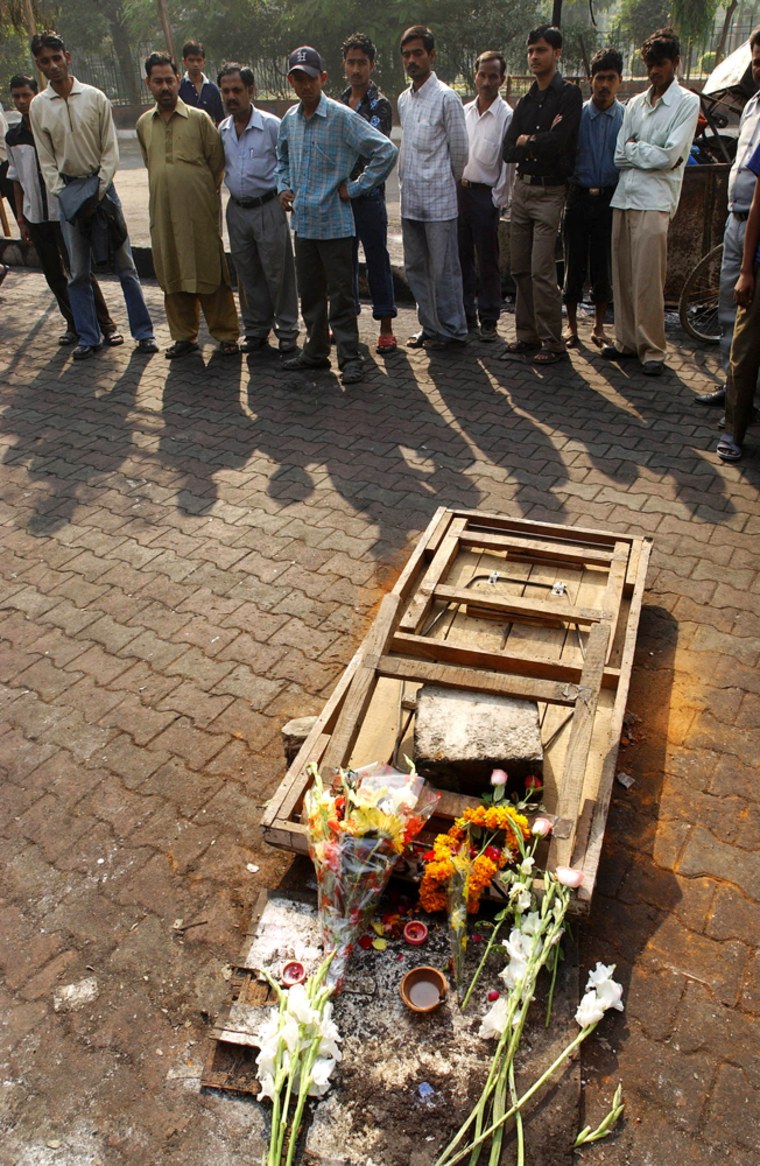Anguished and weary relatives looked for loved ones among rows of charred bodies on Tuesday as Indians marked the biggest Hindu festival of the year clouded by the worst militant attack on the heart of their nation.
The sound of firecrackers greeted the day in Delhi as the city began Diwali, the festival of lights marking the triumph of good over evil, days after three bombs killed at least 59 people and wounded 200 more, some still fighting for life.
Some worshippers were searched as they arrived at temples for prayers. India is on high alert for Diwali and the major Muslim festival of Eid al-Fitr which begins in a few days.
Apart from the fear of more attacks, there are concerns Saturday’s bombings, at such a sensitive religious time, could trigger communal violence.
The Hanuman temple in central Delhi was as packed as any on Tuesday, the day Hindus traditionally bring flowers and offerings for the Monkey God.
“I think people are more determined and want to put the incident behind them,” said businessman Prem Khandelwal. “They want to show that it does not affect them and want to keep the spirit of the festival intact.”
In the financial and entertainment capital of Mumbai, where twin car bombings killed dozens in late 2003, children in bright new clothes were on the streets from early morning, bursting crackers and scoffing sweetmeats and chocolates.
Offices and houses have been illuminated and decorated with sweet-smelling garlands and traditional clay lamps.
“The Delhi blasts have slightly dampened the spirits and people are scared of going into crowded areas,” said customs clearing agent Rajesh Didwania outside his office where he came for traditional puja prayers. “But one has to get on with life.”
Singh talks tough
A 1,000-strong police team is investigating the attacks, claimed by an obscure Kashmiri separatist group, Islami Inqilabi Mahaz. Some analysts say this is probably a front for the larger and better known Pakistan-based Lashkar-e-Taiba.
Lashkar has been blamed for several attacks, including a 2001 raid on India’s parliament that brought the country close to a fourth war with nuclear rival Pakistan. A Pakistani accused of being a member was sentenced to death on Monday for a 2005 raid on Delhi’s Red Fort.
But a Lashkar spokesman has said the group was not involved and had no links to Mahaz. Other Kashmiri separatist leaders have condemned the bombings and said no Islamic group would target civilians.
Prime Minister Manmohan Singh told Pakistan leader Pervez Musharraf the bombings were likely linked to foreign elements and demanded Pakistan act against terrorism directed against India.
An Indian foreign ministry statement said Musharraf had telephoned Singh to offer his condolences.
“The prime minister told the president of Pakistan that the country was outraged at these heinous acts of terrorism,” the statement said, adding Singh reminded Musharraf of Pakistan’s pledge to stop cross-border terrorism.
“We continue to be disturbed and dismayed at indications of the external linkages of terrorist groups with the October 29 bombing, and (Singh) said India expects Pakistan to act against terrorism directed at India.”
In Delhi, relatives clustered outside hospitals on Tuesday trying to find missing loved ones among charred and unidentified bodies.
